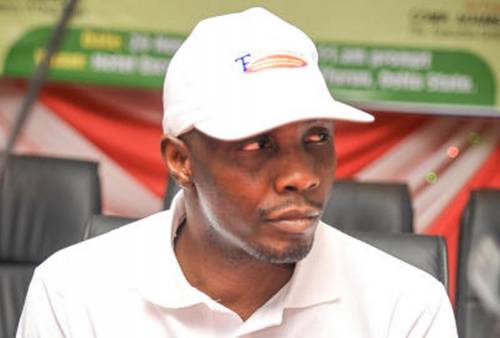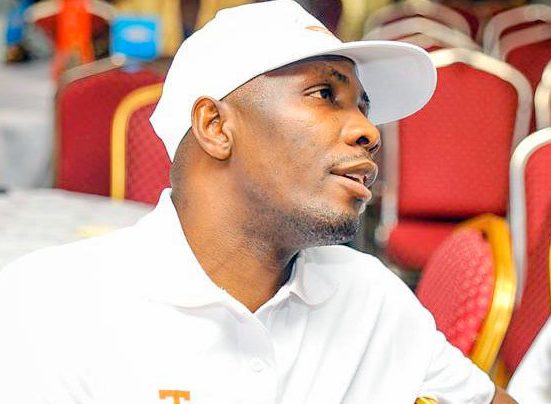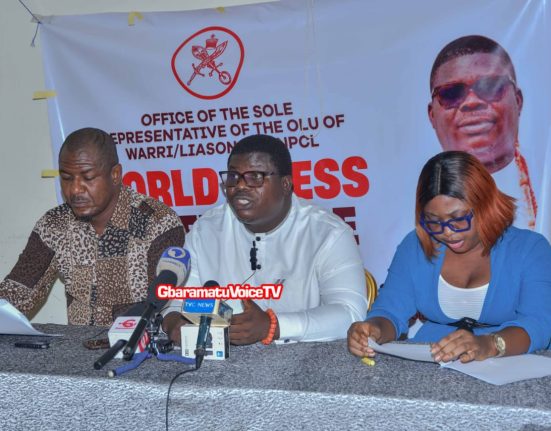Pipelines Surveillance Contract: Why Tompolo Is Suitable
By Jerome-Mario Chijioke Utomi
It is common knowledge that the Nigerian economy has recently been badly hit by the inability of the government to generate dollar revenue from its main source, which is the export of crude oil- a challenge traceable to Sabotage and crude oil siphoning rackets and other criminal gangs.
ALSO READ: Niger Delta: Tompolo warns against environmental pollution, reads riot act to oil thieves in Nigeria
One example that amply demonstrates how audacious and ‘organized’ this illicit trade has gotten is a recent media report that Equatorial Guinea Government arrested a supertanker with a capacity for three million barrels of oil, about three times the one million barrels per day (bpd) currently being produced by Nigeria. The Nigerian Navy confirmed that the ship in question escaped from Nigeria naval security forces after it had been apprehended.
In view of this troubling reality, coupled with other ugly vibes coming from the Niger Delta and the nation’s petroleum sector, this piece considers as a worthy development and big helping hands, the latest decision by the former leader of the defunct Movement for Emancipation of Niger Delta (MEND), and Popular Niger Delta freedom fighter, High Chief Government Ekpemupolo aka Tompolo, to recruit people from the region to check crude oil activities against theft, vandalism, and to prevent environmental pollution. This development it was reported is in response to a deal the Federal government and the Nigerian National Petroleum Corporation (NNPC) Limited reportedly signed with Tompolo to stop illegal bunkering, illegal refining, and other forms of oil theft in the Niger Delta.
The former leader of the defunct Movement for Emancipation of Niger Delta (MEND), who spoke in public in Oporoza Town, the headquarters of Gbaramatu Kingdom, stated that ‘men and women from various communities in Bayelsa, Delta, Rivers, Imo and other Niger Delta states will benefit from the project adding that salaries will be paid directly to those employed in the scheme’.
However, as expected, this development has elicited reactions from stakeholders and the general public. While some people have hailed the action of the Federal Government, and Tom polo’s resolve to assist, others view it with skepticism. They describe it as palliatives that cure the effects of an ailment while leaving the root cause to thrive.
To the rest, the development has confirmed as true the long held agreement among some stakeholders that the government at all levels in Nigeria shirks the traditional but universal responsibility of provision of security, economic and infrastructural succor to the citizenry which the instrumentality of participatory democracy and election of leaders confers on them. This particular contract, partnership and collaboration, they argue confirms the assertion. Thus eliciting this jigsaw: If it has been said that the government has no business in business, what business does the private individual/sector have in helping the government to do its business of providing security and quality governance to the populace? The boundaries between these spheres (arguments) have shifted back and forth for some days. In some cases, they have ended up igniting a lot of tension.
Despite the virtues and validity of the above arguments, there is in the opinion of this piece reasons as to why the present partnership embarked upon by the Federal Government should be applauded.
Aside from the fact that Dr. Goodluck Ebele Jonathan led Federal Government had in the 2012 awarded a similar contract to him(Tompolo) which available records point to the fact that he perfumed perfectly well, another fillip to the Federal decision is the veiled agreement at the global stage that there is nothing wrong with government exploring concept of corporation in governance business, security, infrastructure and resource development from private individuals needed to speed up good governance and promote development
More particularly, the United Nation’s 2030 Sustainable Agenda promotes sustainable partnership between Private-Public Partnerships and Civil Society groups. The Agenda among other things, calls for creative and innovative thinking by all strata of the society-public and private sector and civil society-to promote sustained and inclusive economic growth, social development and environmental protection.
Partnership is at the very centre of the sustainable development agenda as it is both a means to an end, since it is a crucial enabler for the attainment of the other goals and an end to itself. Goal 17 of the Agenda is a means of implementation and revitalized global partnership’.
Also qualifying the Federal Government’s partnership with Chief Tompolo as a right step taken in the right direction is the disclosure that operatives of the Nigeria Army, Navy, Department of State Security (DSS) Police, and other security apparatus are deeply involved in the project as part of measures to arrest and prosecute anyone with the intention to sabotage the protection of government assets.
Very instructive also, is the awareness that the programme will create youth employment and develop a climate of sustainable future and innovation. Talking about youth unemployment in Nigeria, a report recently put it this way: “We are in dire straits because unemployment has diverse implications. Security wise, large unemployed youth population is a threat to the security of the few that are employed. Any transformation agenda that does not have job creation at the centre of its programme will take us nowhere”
As noted recently by this author in a similar piece, Youths challenge cuts across, regions, religion, and tribe, and has led to the proliferation of ethnic militia as well as youth restiveness across the country. This may, in turn, hamper the peace needed if handled with levity. But this threat has become more pronounced in the oil-rich region of the country with the chunk of the proponents spearheaded by the large army of professionally trained ex-militants currently without a job. Proper management of these teaming youth is the panacea for determining the success or otherwise of the 2030 sustainable agenda, It is only by engaging these teeming youths through employment creation that the incessant youth restiveness can be abated.
Thus, this piece supports not just the programme rather, it appreciates Chief Tompolo’s call on leaders of the communities to support the scheme to protect the Niger Delta region saying that noting that the moves to protect the coastal area were targeted to stop revenue leakages of the federal government of Nigeria and the ongoing environmental degradation. While calling for total cooperation among various communities in the region, Tompolo stated that the exercise is not a case of land dispute but such that will bring unity and harmony to indigenes of the Niger Delta states.
Utomi Jerome-Mario is the Programme Coordinator (Media and Public Policy), Social and Economic Justice Advocacy (SEJA), A Lagos-Based Non Governmental Organization (NGO).And could be reached via Jeromeutomi@yahoo.com /08032725374.
Support Quality Journalism in the Niger Delta Region
Join us in our mission to bring development journalism, cultural preservation, and environmental awareness to the forefront. Your contribution makes a difference in the lives of the people of the Niger Delta. Donate today and be a part of the change!









